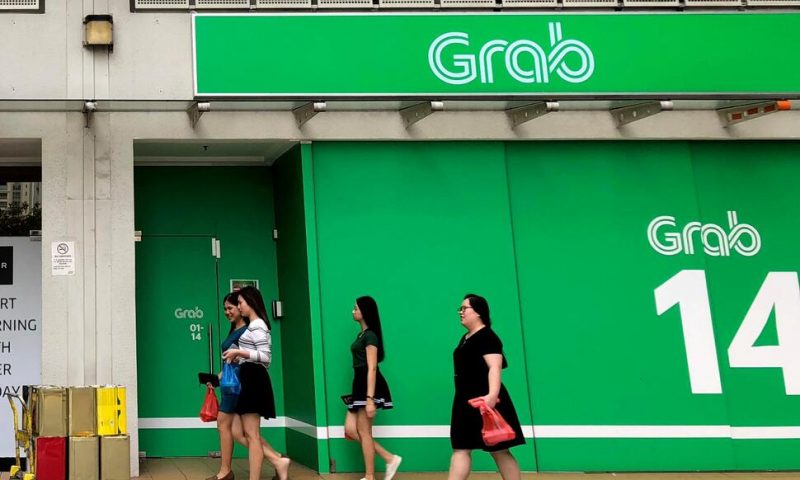Southeast Asia’s largest ride-hailing company Grab tumbled in its market debut Thursday, following a $40 billion merger in a special purpose acquisition company deal.
HONG KONG — Southeast Asia’s largest ride-hailing company Grab tumbled in its market debut Thursday, following a $40 billion merger in a special purpose acquisition company deal.
The Singapore-based company’s debut on the Nasdaq came more than seven months after it announced plans to merge with U.S.-based Altimeter Growth Corp in a SPAC. The company began trading under the ticker “GRAB.”
In midday trading, shares fell 15% to $9.37 while the broader markets were up. They opened at $13.06.
Grab’s listing is the largest U.S. listing by a Southeast Asian company, allowing Grab to raise $4.5 billion in cash proceeds.
Grab, founded by CEO Anthony Tan and co-founder Hooi Ling Tan (no relation) in 2012, began as a ride-hailing company but later expanded into offering other services such as deliveries of groceries and takeout meals, digital payments and financial services.
It now operates in 465 cities across eight countries in Southeast Asia – Cambodia, Indonesia, Malaysia, Myanmar, the Philippines, Singapore, Thailand and Vietnam. Millions of users, as well as drivers and merchants have used the app either for its services or to as a means to earn money.
“This is what Grab’s mission is all about, driving Southeast Asia forward by creating economic empowerment for everyone,” said CEO Anthony Tan at Grab’s bell-ringing ceremony in Singapore.
Joined by hundreds of Grab employees, drivers and merchant partners at the ceremony on Thursday, Tan and his co-founder fist-bumped each other after they rang the bell that kicked off Grab’s market debut on Nasdaq.
With customers coming for so many different services, Grab calls itself a “superapp.” The company is currently still loss-making as it continues to expand its service offerings across the region.
Grab acquired Uber’s Southeast Asian business in 2018. It reported revenue of $157 million in the third quarter, a 9% decline from the same time last year because of a decline in its mobility business due to lockdowns in Vietnam.
In September, the company trimmed its full-year forecasts, citing uncertainty over COVID-19 restrictions amid the spread of the Delta coronavirus variant.
SPAC mergers have gained popularity over the last year as they allow companies to go public and gain capital more cheaply and more quickly than using a conventional initial public offering process. When the SPAC acquires a target, the acquired company takes the SPAC’s spot on an exchange and typically gets a new stock ticker.

